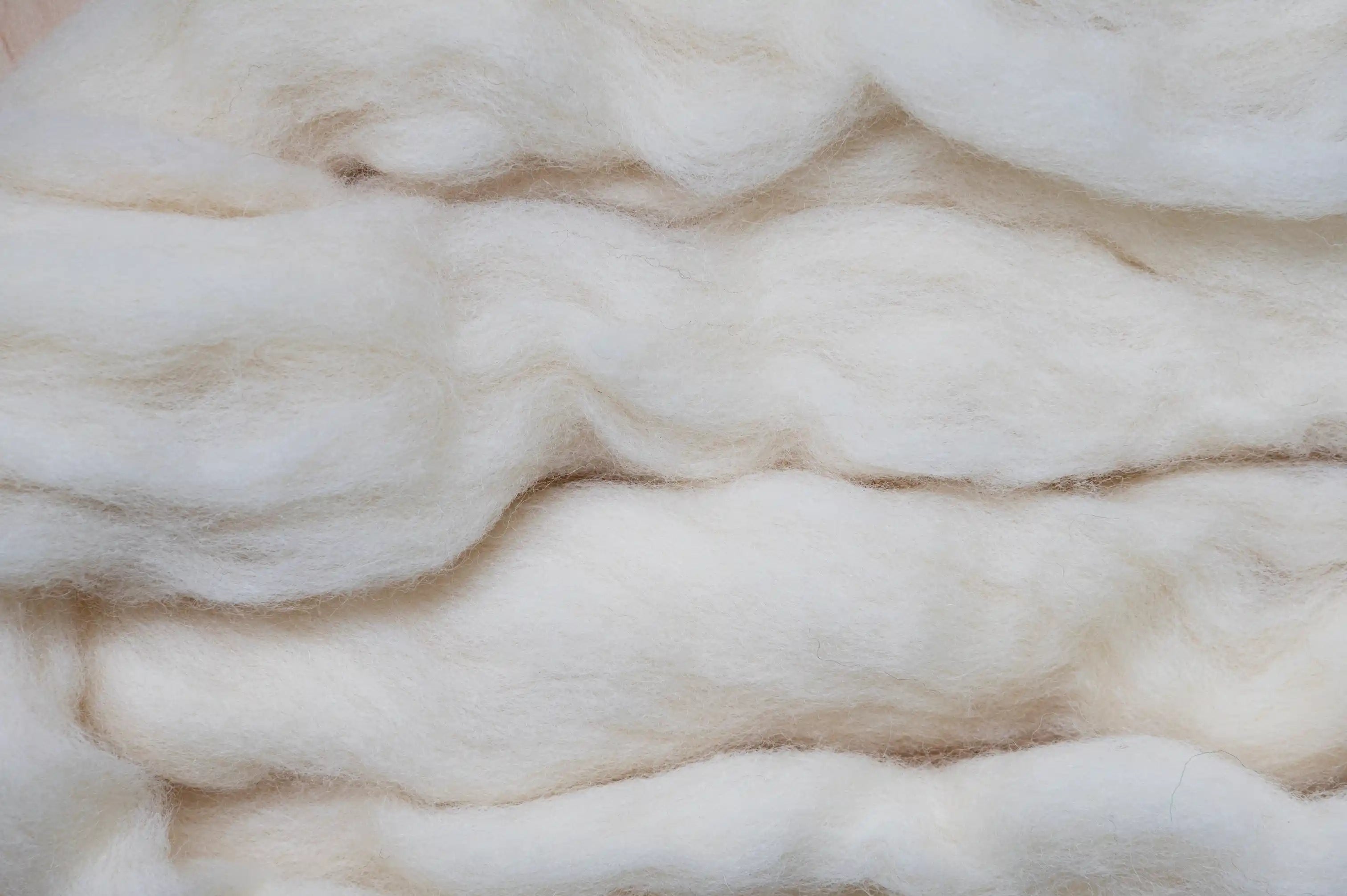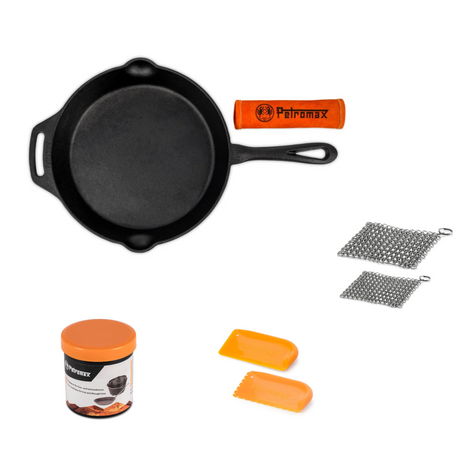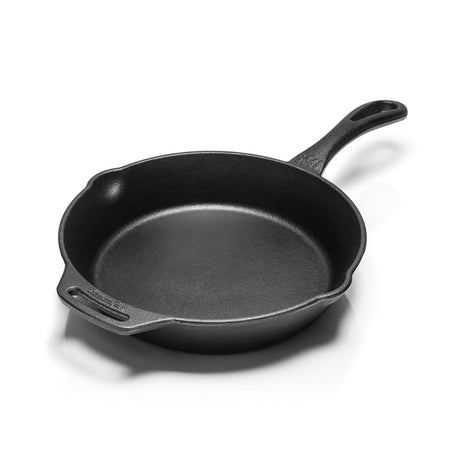Have you ever wondered why so many outdoor enthusiasts swear by merino wool? This fine natural fiber is no longer an insider tip - and for good reason! Merino wool is considered a true all-rounder among functional fibers and has enjoyed growing popularity among outdoor sports enthusiasts for years. But what makes this material so special? Why is it perfect for outdoor activities? And what should you look out for when buying merino wool if sustainability is important to you?
In this article, we take a closer look at this fine fiber and show you why you should choose merino wool for your next outdoor adventure - and how you can protect the environment and animals at the same time.
Table of contents
What is merino wool anyway?
The amazing properties of merino wool
Merino wool and sustainability
What you should look out for when buying sustainable merino wool
The best uses for merino wool
Proper care of merino wool
Conclusion: Why sustainable merino wool is a smart choice
What is merino wool anyway?
Merino wool is a purely natural product that is obtained from the fur of Merino sheep. This special breed of sheep is mainly native to Australia, New Zealand and South Africa and is one of the oldest and hardiest sheep breeds in the world.
Unlike ordinary sheep, Merino sheep can survive in extreme weather conditions and extreme temperature fluctuations - from sweltering heat to freezing cold. It is precisely this adaptability that they owe to their special coat, which we have come to appreciate as Merino wool.
After its foundation in 1995, the New Zealand brand Icebreaker was one of the first to recognize the potential of this natural fibre for outdoor sports and launched the first merino wool products on the international market. Since then, merino wool has become an absolute hit in the outdoor industry.
The amazing properties of merino wool
What actually makes merino wool so special for outdoor activities? Here are the top properties that will inspire you:
1. it is not itchy on the skin
Although merino wool is a wool fiber, it feels soft on the skin and does not itch. This is because merino sheep are fine-wool sheep, whose coats consist of particularly fine, soft and very curly hairs.
The fibers of Merino wool are so fine and thin (much finer than human hair or the wool of other sheep breeds) that they curl on contact with the skin. The nerve cells in our skin perceive this as pleasant - and not as scratchy as with conventional wool.
For comparison: while normal German wool has a fineness of 28.5 to 38 microns, merino wool is only 14.5 to 25 microns. The finer the wool, the more comfortable it is on the skin.
2. natural temperature regulation
Merino wool is a true natural talent - heat-regulating, moisture-wicking and antibacterial. It practically works like a natural air conditioning system:
- In the cold: thanks to its crimped structure, merino fiber can contain up to 85% air (in relation to its total volume). This trapped air provides excellent insulation and keeps you warm.
- In the heat: The breathable properties make it incredibly comfortable to wear. When warm, the fibers absorb the moisture released by the body and release it to the outside - you stay pleasantly fresh.
This property makes merino wool the perfect companion in changeable weather conditions or during activities with different phases of exertion.
3. odorless even with perspiration
Great news for anyone who can't do without deodorant: Merino wool absorbs odor molecules and only releases them again when washed. No matter how hot it is, you'll feel fresh all day long.
The odor neutrality is due to two properties: The protein keratin contained in wool and the scaly fiber surface of wool.
This also means that you can wear your merino clothing for several days in a row without it starting to smell - ideal for multi-day tours or trips with little luggage!
4. quick-drying and moisture-regulating
Merino wool produces a surprisingly fine fabric that releases water quickly and dries much faster than other fabrics. This is particularly useful if you work up a sweat or are out and about in wet weather.
The thermo-regulating properties of merino clothing even come into their own when wet, as the quick-drying fiber can absorb around 30 percent of its dry weight in water without feeling damp.
5. easy-care and crease-resistant
Thanks to its elastic properties, merino fiber is extremely crease-resistant. Once you have hung your shirt up to dry, ironing is no longer necessary. When traveling, you only need to let your merino garments hang out for half an hour and they will be perfect again. No more annoying creases from backpacks or long car journeys!
6. durable and hard-wearing
Merino wool is 6 times stronger than cotton. Each fiber can be creased over 20,000 times, while cotton breaks after only 3,200 times. So your investment in merino wool clothing pays off thanks to its long service life!
Merino wool and sustainability
Merino wool is a sustainable material by nature - but unfortunately not automatically ethical in every form. That's why you should take a close look when buying it:
The environmental benefits of merino wool:
- Unlike the widely used synthetic fiber, merino wool is not only 100% natural, but also a renewable resource. It is endlessly reproduced by nature, is biodegradable and sustainable.
- Merino wool is a naturally renewable raw material. Merino sheep can be shorn up to twice a year and produce up to ten kilograms of wool per animal.
- In contrast to synthetic clothing, which takes 30 years or longer, merino fibers can decompose underground after 12 months. No microplastics, no environmental impact!
- When a wool fiber is thrown away, it decomposes naturally. Over a period of several months or years, microorganisms completely dissolve the wool fibers.
The downside: animal welfare in wool production
When it comes to sustainability, however, it is worth taking a closer look. Although merino wool is particularly sustainable by nature, its production also has its downsides.
The biggest point of criticism is mulesing:
In Australia in particular, the controversial practice of "mulesing" is widespread. Here, the skin around the tail of the lambs is cut away without anaesthetic to prevent infestation with fly maggots. Mulesing is a cruel and painful mutilation of the animals and should be firmly rejected on animal welfare grounds. This practice is heavily criticized internationally and is banned in Germany.
What you should look out for when buying sustainable merino wool
So that you can be sure that your merino wool products have been produced in an environmentally friendly and animal-friendly way, here are the most important tips:
1. mulesing-free production
Make sure you only buy from manufacturers who can rely on mulesing-free sheep farming in their production. Fortunately, this list is getting longer and longer.
Responsible merino clothing brands that care about animal welfare and quality are taking a stand against this controversial practice by only buying merino wool from certified mulesing-free suppliers.
2. pay attention to certificates and seals
The RWS seal (Responsible Wool Standard) is a voluntary global standard with which farmers can certify their sustainably and species-appropriately sourced merino wool. It ensures that the animals are kept in a species-appropriate manner and that all stages of production, from the farm to the end product, meet high standards.
If you see the kbT label (controlled organic animal husbandry) on the label of a merino product, you can be sure that the wool comes from species-appropriate animal husbandry. There are legal requirements for this label, which include sufficient exercise, species-appropriate feeding and good health care.
Terms such as "organic" or "eco" do not initially say much about sustainable merino wool. Merino wool can be called "organic", but that does not necessarily mean it is sustainable. More and more companies are therefore relying on standardized seals.
3. rely on sustainable manufacturers
Many renowned outdoor brands now rely on sustainable merino wool production:
- Outdoor manufacturer Ortovox, for example, has developed strict standards for the sustainable production of fair merino wool. This is what the Ortovox Wool Promise stands for.
- The New Zealand brand Icebreaker is considered a pioneer in the production and processing of merino wool, partly because the New Zealanders focus on sustainable use and guarantee good treatment of the merino sheep.
- The Swiss outdoor label Rotauf processes almost exclusively organic merino wool from South America and aims to do without the small amount of organic wool purchased from Australia in the future. The label excludes wool from sheep that have been treated with the mulesing method.
4. quality vs. price
The price often allows conclusions to be drawn about the production process. Cheap merino products on the low-cost market should therefore be viewed with skepticism. It is always advisable to buy from brand manufacturers who are committed to quality and ethically correct wool and who maintain close contact with the farmers.
The best uses for merino wool
Merino wool is incredibly versatile. Here are the most popular uses for outdoor activities:
1. baselayers (underwear and t-shirts)
A baselayer serves as the bottom layer of clothing and lies directly on your skin. Its task is to regulate your body temperature, keep you warm and transport moisture to the outside. Due to the advantages of merino wool, it is obvious that this natural "high-tech fiber" is ideal as a base layer.
The thinnest and lightest merino shirts often weigh just 150 grams and are therefore perfect for warm weather activities or as a first layer in the onion principle.
2. midlayers (pullovers and fleece jackets)
The fine wool is also used in midlayers such as fleece jackets and fleece pullovers or in pure merino pullovers. This middle layer provides additional thermal insulation and can be put on or taken off depending on the weather conditions.
3. socks
Merino socks are ideal for long hikes, trekking tours or skiing. They keep your feet warm and dry, prevent blisters and don't stink even after long tours.
4. hats, scarves and gloves
Thanks to its excellent warming properties, merino wool is ideal for accessories that protect you in cold weather.
5. blended fabrics for more durability
Many manufacturers offer merino wool clothing that is blended with other fibers. As a rule, synthetic fibers are used to make the material more durable. A small amount of elastane makes the material even more stretchy and increases its tear resistance. Merino synthetic fiber blends also dry faster and improve moisture transport.
Loden - the perfect alternative for outdoor jackets
Speaking of sustainable natural fabrics for outdoor activities, there is also a great fabric for outdoor jackets that you should definitely know about: loden.
Loden is the "big brother" of merino wool, so to speak - also a wool fabric, but with a special finish that makes it the perfect material for robust outdoor jackets. Loden is made from virgin sheep's wool, which is first combed into a fleece, then spun into a thread and woven into a cloth. The crucial difference: the fabric is then "milled" - a process in which the material is tamped in warm water, causing the wool fibers to interlock and become extremely dense.
The result is an incredibly robust, dimensionally stable fabric with impressive properties for outdoor activities:
- Water-repellent: due to the fulling process and the natural wool fats (lanolin), loden is naturally water-repellent, without any chemical additives.
- Windproof: The dense structure of the fabric offers excellent protection from the wind.
- Spark-resistant: Unlike synthetic materials, loden is resistant to sparks - ideal for anyone who enjoys sitting around a campfire.
- Silent: While synthetic outdoor jackets often rustle with every movement, loden remains silent - perfect for nature photographers and anyone who wants to enjoy the silence of nature.
- Sustainable: As a purely natural product, loden is biodegradable and contains no microplastics.
Manufacturers like us at Petromax have rediscovered the traditional fabric for modern outdoor adventurers and offer stylish, functional loden jackets. Our "Deubelskerl" and "Bergmaid" models are made of 100% mulesing-free milled virgin sheep's wool and are manufactured entirely in Germany!
If you would like to find out more about this fascinating, sustainable outdoor fabric, take a look at the detailed article "What is Loden? Everything about the warm & robust wool fabric" at Petromax.
Proper care of merino wool
To ensure that you can enjoy your merino wool clothing for a long time, you should keep a few things in mind when caring for it:
When it comes to wool jackets or wool sweaters made of merino wool (so you don't really sweat through them), it is often enough to air out these products. The self-cleaning properties of wool make this possible!
If you need to wash your merino clothing:
- Use a wool or mild detergent for washing, preferably an ecological, sustainable product of course. It is important that it does not contain any enzymes.
- You should not use fabric softener or bleach. Merino shirts & co. don't like that at all.
- Wool doesn't like tumble dryers either. The best way to dry soft wool is to lay it flat or hang it on a clothes horse.
- Tip: A commercially available washing bag prevents holes in your merino wool clothing.
Conclusion: why sustainable merino wool is a smart choice
Merino wool really is an impressive natural product with numerous benefits for outdoor activities. It regulates temperature, transports moisture, prevents odors and feels pleasant on the skin - all properties that are worth their weight in gold on outdoor adventures.
If you pay attention to sustainable and animal-friendly production when buying, merino wool is also an environmentally conscious alternative to synthetic materials. It is biodegradable, a renewable raw material and, if produced correctly, also compatible with animal welfare.
Look out for seals such as RWS or kbT, buy from trustworthy manufacturers and be skeptical of cheap offers. This way, you can enjoy the benefits of this fine fiber with a clear conscience - and your outdoor experiences will be even more enjoyable!






































